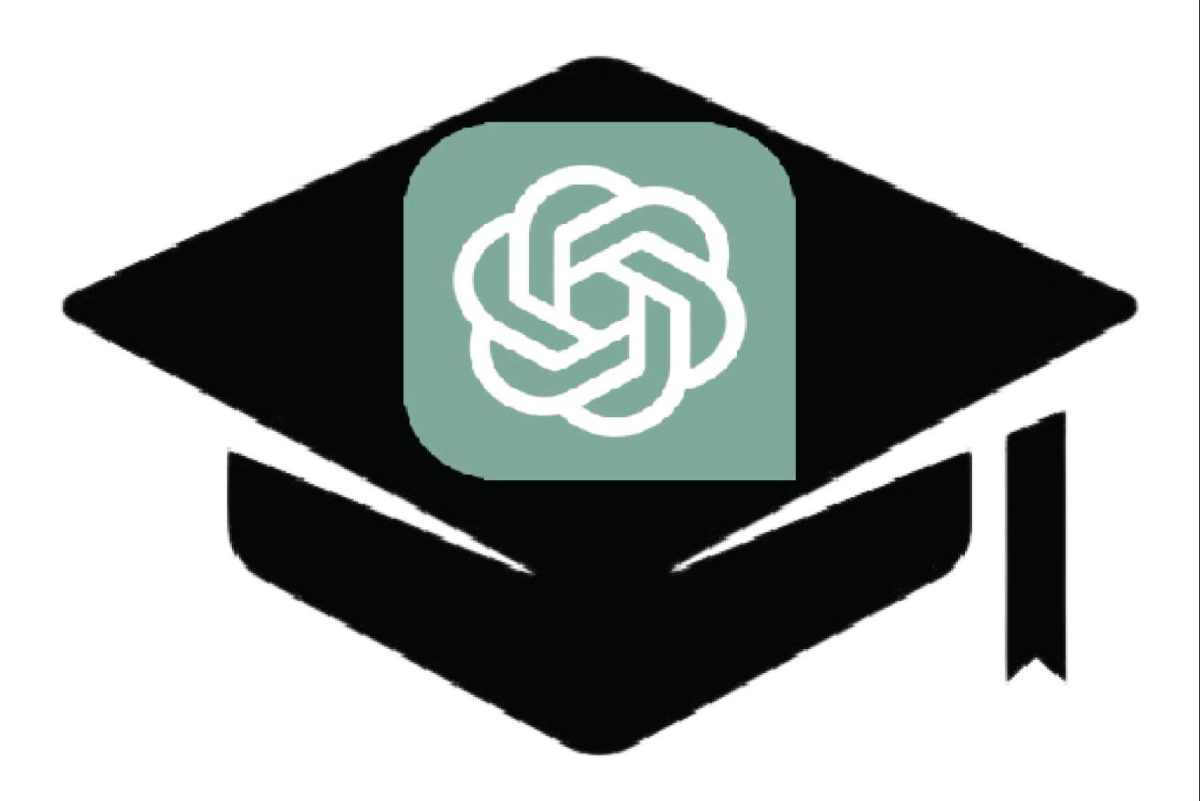Many educators are wary of AI platforms like ChatGPT, and often for good reason. According to a survey by Junior Achievement USA, almost 44% of teenagers who responded to the survey expressed that they were “likely” to use AI as a means to do their schoolwork in the 2022-2023 academic year. 60% of the respondents viewed this use of AI as a form of cheating, which violates the policies many schools have regarding academic dishonesty.
“I think [AI] has a bad reputation, especially among educators. The point of school is to exercise independent thought, and AI takes away from that exercise of thought,” English teacher Michael Reidy said.
While AI can present an alluring shortcut to repetitive school work, it can potentially negatively affect a student’s education.
“I think AI can be a tool. I think there is a danger, though, in being over-reliant on AI in both the teaching capacity and how it impacts learning,” says Reidy.
According to Reidy, younger students are more susceptible to the risks posed by artificial intelligence software. An overdependence on AI to help with assignments could eventually stunt their overall academic journey in English classes.
“AI limits their ability to learn to write, then you get into these situations where you go from English one to English two. They start to do timed writes and then they don’t have the practice,” Reidy said.
However, as society progressively puts pressure on the newer generation in terms of education, educators sympathize with their use of AI.
“If a student writes an essay, and they’re stressed for time or they don’t think they’ll do a good job, they’ll just use it to help them write the essay,” Reidy said.
Due to students’ accumulation of school work, many educators fear that AI will destroy a student’s foundational proficiency in their classes.
“Unfortunately, I think the nature of being in high school and being a student, especially with you all having so much to do, that sometimes you use AI to give you the answers rather than trying to figure it out for yourselves and to learn it,” says Reidy.
Despite the anti-AI sentiment widely shared in the educational field, AI can help educators and students just as easily. For example, AP computer science students are now using AI during their assessments, enhancing their coding ability.
“We just did a project where students needed to come up with some multiple choice questions and the students used AI to assist them with developing questions that they would use in their programs,” computer science teacher Kristen Cordes said.
Additionally, AI can help to broaden the perspective of teachers, aiding their teaching style and ultimately improving the education of students.
“There might be a concept that I understand, but I have a difficult time kind of explaining it,” says Cordes, “But if I put the question into ChatGPT, for example, it will walk it through step by step, which helps me to see a better way to explain things than maybe the way I’m doing it.”
Class Planit, a company utilizing AI, helps teachers create curriculum plans and to shorten monotonous work. Though there is a prevalent stigma of AI in schools, Class Planit hopes that AI can be utilized as a tool.
Audrey Akwenye, the former CTO of Class Planit, states that she hopes students learn to use AI to garnish their own abilities.
“As educators, we have to help students embrace AI in a positive way,” Akwenye said. “They need to learn to use AI as a tool that helps them learn and understand and grow their knowledge, and not as a cop-out that helps them cut corners.”
Though the stigma of education is pervasive throughout schools, accepting AI is crucial to moving forward as a society.
“I think that we’re moving towards a world where AI is going to impact every aspect of everyone’s lives,” says Akwenye, “From when you’re small, all the way until when you start and build your career.”




